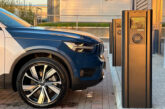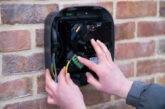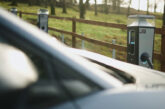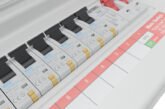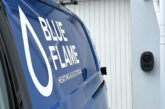
The unreliable charging infrastructure is preventing the EV (electric vehicle) roll out, according to an article in Autocar published this July.
This is hardly surprising given the ad hoc manner of the development of the infrastructure and the lack of strategic control in Britain.
It has been estimated that there are in the region twenty eight thousand charging station in the UK, of which ten thousand of these are privately owned.
To add an additional level of confusion, there are at least ten manufactures of vehicle charging equipment approved by the Office for Low Emission Vehicles. Each manufacturer is required to train electrical engineers on the installation of their equipment, but this can be as cursory as working through a web based programme and answering some questions.
Meanwhile the 18th Edition requires that each charging point “shall be protected by either a RCD type B or a RCD type A and appropriate equipment that ensures disconnection of supply in case of a fault current above 6 mA DC”. From the beginning of this year the 6 mA DC fault current protection has been built in to the charging unit. There is no comment on how they should be tested on installation or into the future to ensure proper functioning and reliability.
‘Twixt charger and tester, the interface.
Strangely, while the EV charging station product market is relatively well developed, the equipment market for testing them is not. At the last count few manufactures produced interfaces for testing the roadside chargers without opening it up. Metrel, the test equipment manufacturer, has developed an EVSE adapter, A1532, that can interface between any charge point and their own or any manufacturers’ tester.
The adapter facilitates the testing of single and three- phase chargers and can test it functionally. It simulates the charging state of the vehicle, disconnected, charge ready, active charging (with and without ventilation) and pilot error, permitting the system to tested as a whole and not just discrete parts. And because there is no need to open the box, testing is quick and there are no warranty implications.
However, there is a problem, for electrical testing with these adapters; they are only as good as the tester you connect them to!
Testers – the limitation.
Returning to the 18th Edition stipulation, the electrical vehicle supply equipment (EVSE) must be protected by type B RCD or a type A RCD and something to disconnect the supply when more than 6 mA of DC fault current are present. Any all-in-one tester will test type A RCDs, premium testers will test type B RCDs; but it is only the Metrel range of multi-testers MI3125BT, MI3152 and MI32155 will test type B RCBs and those that offer a standard 6 mA DC disconnection test classed as type EV RCDs to confirm all types of charger protection conform to the 18th Edition. Furthermore only these three testers are capable of offering a reliable loop test through the 6 mA DC protection.
To find out more go to http://bit.ly/e-car-test
For more information on the 18th Edition Wiring Regulations click here.

